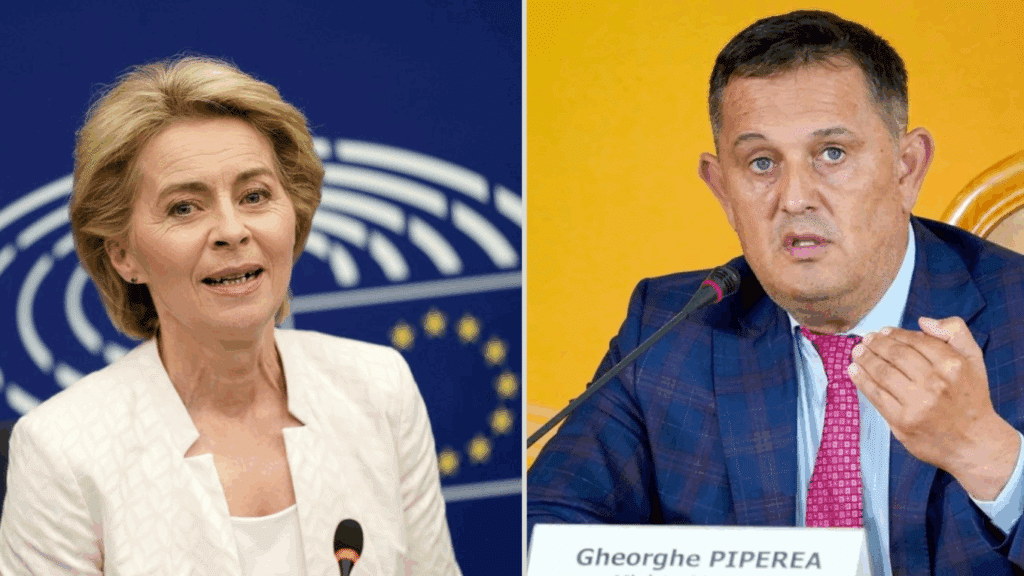
On Wednesday, June 26, Romanian MEP Gheorghe Piperea, representing the Alliance for the Union of Romanians (AUR) and affiliated with the European Conservatives and Reformists (ECR) group, officially submitted a motion of censure against the European Commission led by Ursula von der Leyen. The document was addressed to European Parliament President Roberta Metsola and backed by 74 MEPs—over 10% of the chamber—thus meeting the formal requirement under Article 131 of the European Parliament’s Rules of Procedure.
The motion is set to be discussed at the next Conference of Presidents on July 2 and will be put to a vote during the plenary session in Strasbourg, scheduled between July 7 and 10, 2025.
Piperea has accused Commission President Ursula von der Leyen of governing through opacity and backroom deals, bypassing democratic accountability and ignoring the only EU institution elected directly by the people—the European Parliament.
“The purpose of this initiative is to uphold transparency and ensure a genuine democratic process,” Piperea said in a statement quoted by the Financial Times.
Central to the motion is the “Pfizergate” scandal, involving allegedly undisclosed communications between von der Leyen and the CEO of Pfizer during negotiations over COVID-19 vaccine contracts. Piperea and other critics claim that these deals lack proper oversight and may involve conflicts of interest or misuse of public funds.
Although the motion originates from a right-wing eurosceptic platform, criticism of von der Leyen’s leadership style is growing across the political spectrum. According to Piperea, even members of the centrist and left-leaning groups have voiced frustration with the Commission’s lack of accountability.
Von der Leyen is also accused of being too lenient with national governments, undermining the role of the Parliament and ignoring mounting concerns over democratic backsliding and misgovernance in several member states.
For the motion of censure to succeed and lead to the dismissal of the Commission, it would need the support of two-thirds of the MEPs present during the vote. Given the current composition of the Parliament—720 members—and von der Leyen’s previous support from over 400 MEPs, the chances of success are slim.
However, Piperea argues that the symbolic value of the initiative is significant. “This motion compels the Commission to respond to serious concerns and offer explanations. Even if it doesn’t pass, it is a crucial opportunity for constructive and well-grounded criticism of President von der Leyen,” he said.
While the motion is unlikely to topple the European Commission, it amplifies a growing wave of distrust in von der Leyen’s presidency. Allegations of backroom vaccine deals, lack of transparency, and disregard for parliamentary oversight have severely damaged the credibility of the EU executive. This censure motion—rare but impactful—highlights the urgent need for reform, accountability, and a return to democratic principles at the highest levels of the European Union.